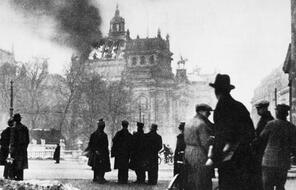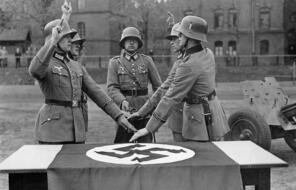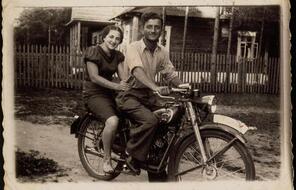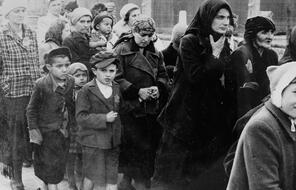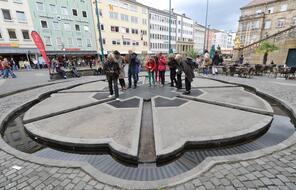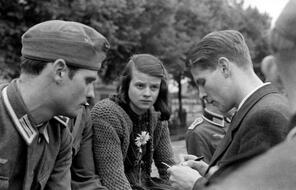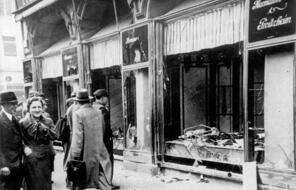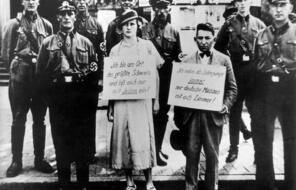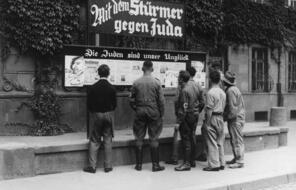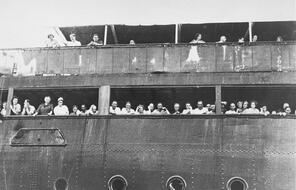Faith Despite a Broken World
At a Glance
Language
English — USSubject
- History
- Social Studies
- The Holocaust
Irving Rosenbaum is an Orthodox Jew and the author of The Holocaust and Halakhah, a survey of halachic decisions reached during the Holocaust. He writes:
It has become almost an article of faith that the Holocaust was without precedent in Jewish experience. It was not!...While much of its technology was novel, the Holocaust simply duplicated on an extensive and enormous scale events which had occurred with melancholy regularity throughout Jewish history....In the face of events which would make Job’s trials seem trivial, Jews retained their confident belief in a just Creator, whose secret purposes they might not fathom... 1
Irving Greenberg is an Orthodox rabbi who was born in the United States. He is a theologian and historian who has written books and articles on the ethical implications of the Holocaust. He observes:
All truths are moment truths....Pluralism is the living together of absolute truths/faiths/systems that have come to know and accept their own limitations, thus making room for the dignity and truth of the other. This broken truth is the future of truth in a broken world. Rav Nachman of Bratzlav once wrote that there is no heart so whole as a broken heart. After the Shoah, the world will come to know that there is no truth so whole as a broken truth. 2
Eliezer Berkovits is an Orthodox Jew who served as a rabbi in Germany until 1939. He later worked as a theologian and educator in Britain, Australia, and the United States. He is the author of Faith after the Holocaust. He writes:
The hiding God is present; though man is unaware of him. He is present in his hiddenness. Therefore, God can only hide in this world. But if this world was altogether and radically profane, there would be no place in it for Him to hide. He can only hide in history. Since history is man’s responsibility, one would, in fact, expect him to hide, to be silent, while man is about his God-given task. Responsibility requires freedom, but God’s convincing presence would undermine the freedom of human decision. God hides in human responsibility and freedom. 3
Immanuel Jakobovits, who served as Chief Rabbi of the United Hebrew Congregations of the British Commonwealth, was born in Germany but escaped in 1938 just before the war. He has written and spoken on Jewish life after the Holocaust:
When I am asked, Where was God at Auschwitz? I too have no answer. Perhaps there is none. The real question is: Where was man at Auschwitz? Where was the humanity of a cultured nation mesmerized by a rabble-rouser, to turn into millions of mass-murderers and their accomplices? Where was man when numerous civilized nations remained silent and closed their border to those fleeing from fiendish persecution? Where was man when millions were shipped here in cattle trucks for the crime of being born as Jews? 4
Emil Fackenheim was a German-born philosopher and theologian. Ordained as a Reform rabbi, he tried to place the Holocaust in the context of Judaism:
The 614th Commandment: Jews are forbidden to hand Hitler posthumous victories. They are commanded to survive as Jews lest the Jewish people perish. They are commanded to remember the victims of Auschwitz lest their memory perish. They are forbidden to despair of man and his world, and to escape either into cynicism or otherworldliness, lest they cooperate in delivering the world over to the forces of Auschwitz. Finally, they are forbidden to despair of the God of Israel, lest Judaism perish. 5
Historian David Blumenthal is a professor of Judaic Studies and the author of several books on theology after the Holocaust. He writes:
You must take a stand, if God is integral to who you are. . . . I reached the conclusion that God is present and responsible even in moments of great evil. God is, indeed, partly responsible for the shoah. . . . This leaves us with a God who is not perfect, not even always good. . . . Jewish tradition advocates this position and reaches the conclusion that protest is the only proper response. Not defensiveness. Not denial. But protest—in thought and prayer. 6
- 1Irving J. Rosenbaum, The Holocaust and Halakhah (New York: Ktav Publishing, 1976), 1–2.
- 2Irving Greenberg, “Theology after the Shoah: The Transformation of the Core Paradigm,” Modern Judaism 26, no. 3 (2006).
- 3Eliezer Berkovits, Faith after the Holocaust (New York: Ktav Publishing, 1973), 63–64.
- 4Immanuel Jakobovits, “Where Was Man at Auschwitz?” in Christian-Jewish Dialogue: A Reader, ed. Helen Fry (Exeter: University of Exeter Press, 1996), 65–66.
- 5Emil Fackenheim, “Jewish Faith and the Holocaust,” in The Jewish Thought of Emil Fackenheim: A Reader, ed. Michael Morgan (Detriot: Wayne State University Press, 1987), 176.
- 6David Blumenthal, “Despair and Hope in Post-Shoah Jewish Life,” Bridges: An Interdisciplinary Journal of Theology, Philosophy, History, and Science, 6: 3/4 (Fall/Winter, 1999).
How to Cite This Reading
Facing History & Ourselves, "Faith Despite a Broken World," last updated June 1, 2017.
This reading contains text not authored by Facing History & Ourselves. See footnotes for source information.

